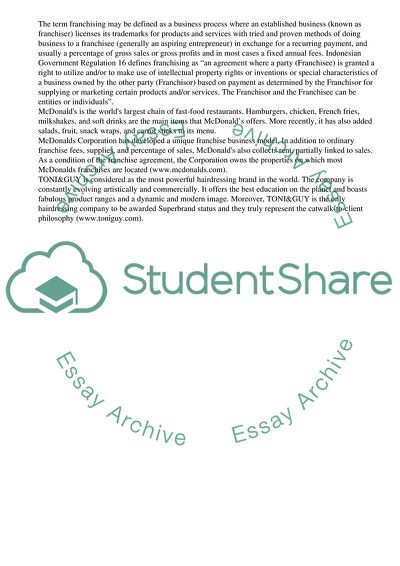Cite this document
(Franchising in Indonesia Term Paper Example | Topics and Well Written Essays - 2000 words, n.d.)
Franchising in Indonesia Term Paper Example | Topics and Well Written Essays - 2000 words. Retrieved from https://studentshare.org/business/1541070-franchising-marketing
Franchising in Indonesia Term Paper Example | Topics and Well Written Essays - 2000 words. Retrieved from https://studentshare.org/business/1541070-franchising-marketing
(Franchising in Indonesia Term Paper Example | Topics and Well Written Essays - 2000 Words)
Franchising in Indonesia Term Paper Example | Topics and Well Written Essays - 2000 Words. https://studentshare.org/business/1541070-franchising-marketing.
Franchising in Indonesia Term Paper Example | Topics and Well Written Essays - 2000 Words. https://studentshare.org/business/1541070-franchising-marketing.
“Franchising in Indonesia Term Paper Example | Topics and Well Written Essays - 2000 Words”, n.d. https://studentshare.org/business/1541070-franchising-marketing.


